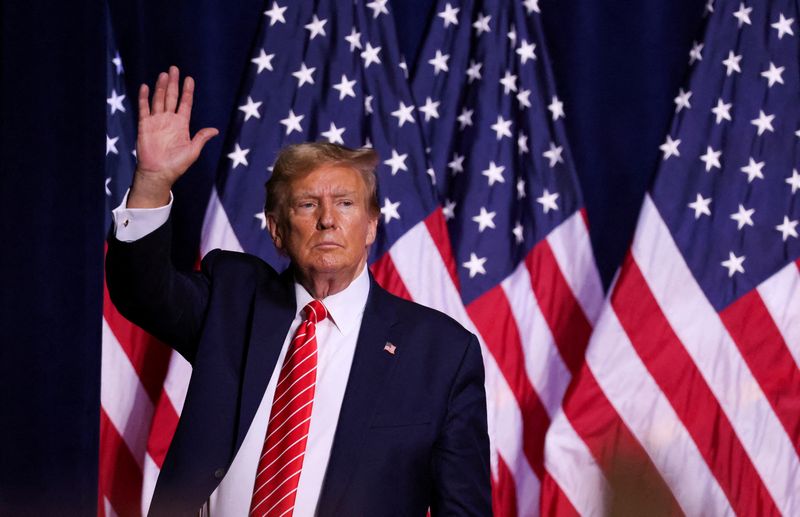Standard Chartered (OTC:SCBFF) Bank analysts suggest that former President Donald Trump and his running mate J.D. Vance may struggle to achieve the US dollar depreciation they desire.
Their economic strategy aims to weaken the dollar to reduce imports and boost US manufacturing employment.
However, the bank says that the contradiction lies in Trump's simultaneous goal of maintaining the USD as a reserve currency.
According to Standard Chartered, "most of his policies seem likely to increase inflation and interest rates, likely strengthening the USD in the short term."
The 1985 Plaza Accord, often cited in discussions of coordinated currency devaluation, "is not a realistic blueprint," say the analysts.
They argue that without cooperation from the US economy—specifically, a slowdown—and stable growth in other regions, efforts to weaken the dollar through international coordination are unlikely to succeed.
The analysts believe that the USD is unlikely to depreciate on its own if Trump's policy agenda is implemented. They note that the FX market would be vigilant for any indication that the Federal Reserve was tolerating higher inflation, which could influence the dollar's value.
"If Trump's policies led to poor growth, higher debt, and above-target inflation, the USD would likely come under pressure," they add.
This pressure would stem from a loss of confidence in US economic policy rather than the intended policy mechanisms.
Standard Chartered concludes that "as long as the Fed adhered to its low inflation commitment, the USD would likely rise," despite the administration's desire for a weaker dollar.
They emphasize that FX markets tend to tolerate currencies from central banks that maintain real interest rates to meet inflation targets. Thus, Standard Chartered believes while Trump and Vance's intentions are clear, the economic and market dynamics suggest their goal of depreciating the USD may be challenging to achieve.
